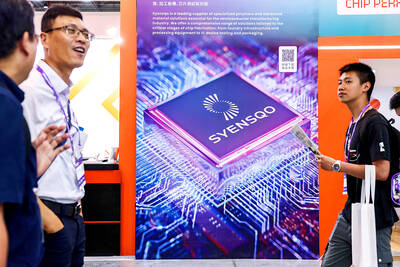The legislature’s Finance Committee yesterday approved plans to extend tax cuts for electric car sales by another five years to help electric car and parts makers grow and stay viable.
The bill, which must still pass second and third readings, exempts electric motorcycles and cars valued at less than NT$1.4 million (US$43,411) from sales tax from next month to December 2021 to boost sales.
The tax exemption was introduced in 2011 and was due to expire on Jan. 26.
Vice Minister of Economic Affairs Shen Jong-chin (沈榮津) said that the extension is necessary to encourage the development and purchase of electric vehicles.
The tax incentive could increase electric cars sale by 5,939 units and electric motorcycles sales by 150,000 units over the next five years, or generate related industrial output by NT$94.39 billion, Shen said.
Governments abroad have introduced measures to boost electric vehicle sales because the vehicles are seen as more environmentally friendly.
LOCAL FIRMS
Twenty-eight local firms are involved in the development and production of electric vehicles and parts, Shen said.
The expected increase in electric vehicle sales may help boost business tax by NT$4.36 billion a year, more than offsetting tax losses estimated at NT$2.4 billion per year, Minister of Finance Sheu Yu-jer (許虞哲) said.
Critics have questioned the success of the tax exemption, citing low sales figures.
Shen attributed the lackluster performance to a lack of battery packs in the supply chain and the extended tax exemption is intended to address that.
The legislature’s Finance Committee also approved plans to allow the Ministry of Finance five more years to collect back taxes on notorious tax debtors, including family members of late business tycoon Huang Jen-chung (黃任中) and Holiday Inn Asiaworld Taipei (環亞飯店).
UNSETTLED CASES
A revision of the Tax Collection Act (8) in 2007 stipulated that the government has 10 years to collect outstanding back taxes, which is due to expire on March 4 next year, meaning it has to close any unsettled cases at that time.
The extension would allow the ministry to pursue those cases further and recover an additional NT$5 billion in back taxes, Sheu said, adding that the recovery unpaid of tax is an important element of a fair taxation system.
The ministry is to target 370 people, each of whom owes more than NT$10 million tax, Sheu said.
The minister remained uncommitted to tax cuts for daily trade to invigorate the local bourse, saying daily trade does not enjoy favorable tax terms in other countries.
The ministry needs more time to contemplate the issue, Sheu said.

SEMICONDUCTOR SERVICES: A company executive said that Taiwanese firms must think about how to participate in global supply chains and lift their competitiveness Taiwan Semiconductor Manufacturing Co (TSMC, 台積電) yesterday said it expects to launch its first multifunctional service center in Pingtung County in the middle of 2027, in a bid to foster a resilient high-tech facility construction ecosystem. TSMC broached the idea of creating a center two or three years ago when it started building new manufacturing capacity in the US and Japan, the company said. The center, dubbed an “ecosystem park,” would assist local manufacturing facility construction partners to upgrade their capabilities and secure more deals from other global chipmakers such as Intel Corp, Micron Technology Inc and Infineon Technologies AG, TSMC said. It

EXPORT GROWTH: The AI boom has shortened chip cycles to just one year, putting pressure on chipmakers to accelerate development and expand packaging capacity Developing a localized supply chain for advanced packaging equipment is critical for keeping pace with customers’ increasingly shrinking time-to-market cycles for new artificial intelligence (AI) chips, Taiwan Semiconductor Manufacturing Co (TSMC, 台積電) said yesterday. Spurred on by the AI revolution, customers are accelerating product upgrades to nearly every year, compared with the two to three-year development cadence in the past, TSMC vice president of advanced packaging technology and service Jun He (何軍) said at a 3D IC Global Summit organized by SEMI in Taipei. These shortened cycles put heavy pressure on chipmakers, as the entire process — from chip design to mass

Germany is to establish its first-ever national pavilion at Semicon Taiwan, which starts tomorrow in Taipei, as the country looks to raise its profile and deepen semiconductor ties with Taiwan as global chip demand accelerates. Martin Mayer, a semiconductor investment expert at Germany Trade & Invest (GTAI), Germany’s international economic promotion agency, said before leaving for Taiwan that the nation is a crucial partner in developing Germany’s semiconductor ecosystem. Germany’s debut at the international semiconductor exhibition in Taipei aims to “show presence” and signal its commitment to semiconductors, while building trust with Taiwanese companies, government and industry associations, he said. “The best outcome

People walk past advertising for a Syensqo chip at the Semicon Taiwan exhibition in Taipei yesterday.